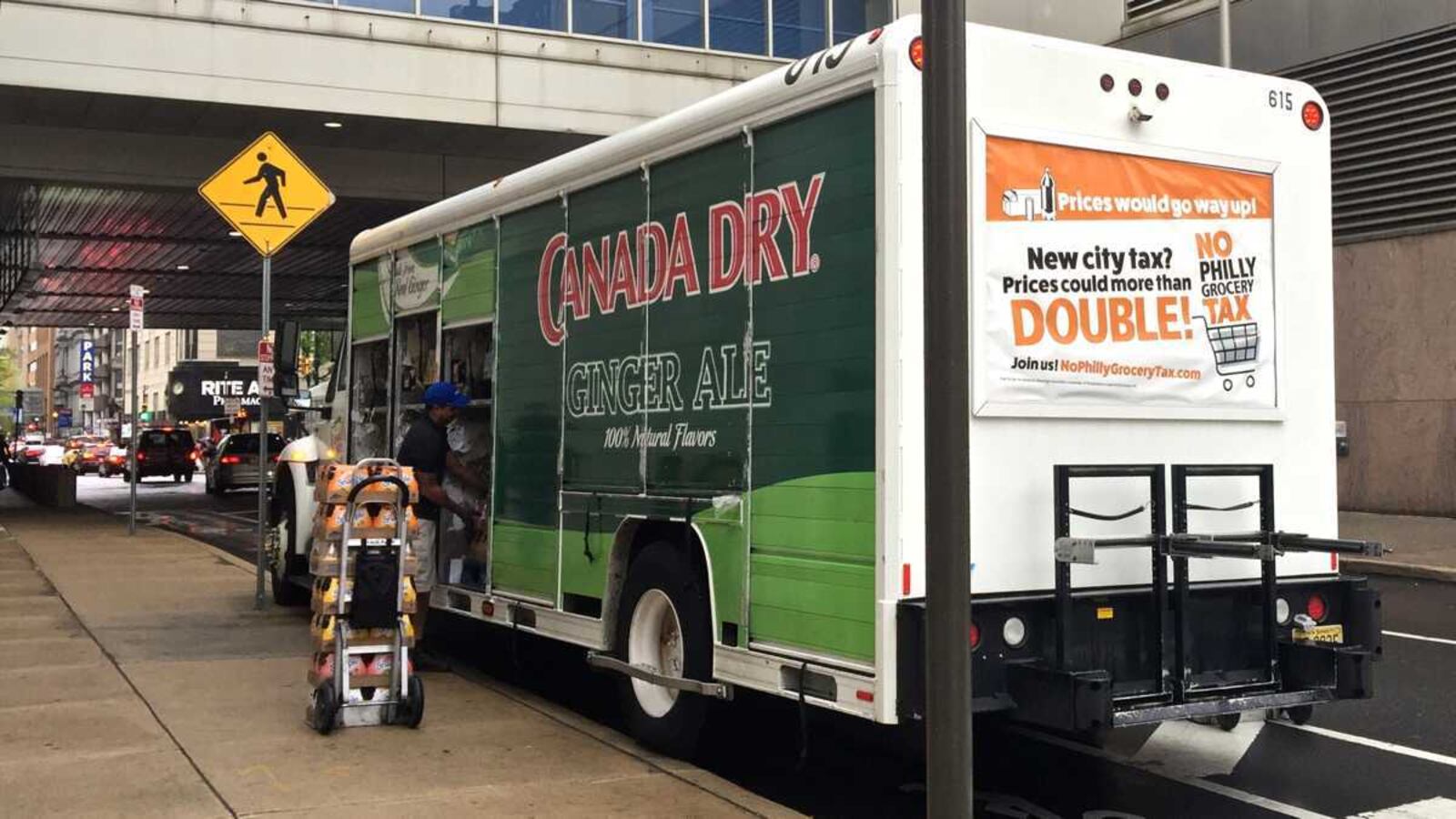This article was originally published in The Notebook. In August 2020, The Notebook became Chalkbeat Philadelphia.
A lawsuit challenging Philadelphia’s new sweetened beverage tax was dismissed Monday in Common Pleas Court, which allows the Kenney administration to move ahead with an expanded prekindergarten program funded by the tax.
In addition to saying he will use the tax – often referred to as the soda tax – for the expansion of early childhood education, Mayor Kenney also wants to fund the rehabilitation of hundreds of recreation centers and playgrounds, subsidize 25 community schools, and equip police with body cameras. The tax is expected to raise $92 million over the next five years.
"Today is much more than a simple vindication of the legal principles on which the tax is based,” the mayor said in a statement. “It is a victory for Philadelphians, who have waited far too long for investment in their education system and in their neighborhoods.”
The dismissal is also a huge victory for the mayor, whose main policy fight during his first year was expanding prekindergarten through the soda tax.
The city plans to spend the first influx of revenue from the tax to pay for 2,000 new prekindergarten seats in January — 1,700 of which have already been filled as of last week.
The tax, which goes into effect Jan. 1, collects 1.5 cents per ounce of most sugary and diet beverages. Revenue is collected from distributors, not customers, although opponents contend that still means a price increase for customers.
If this entire cost is transferred to the customer, that would amount to 18 cents on a 12-ounce can. The tax applies to any non-alcoholic beverage with added sweetener, whether it’s natural or artificial: sodas, sports drinks, sweetened teas, and flavored waters.
City Council approved the tax in a 13-4 vote on June 16, after the beverage industry spent $10.6 million lobbying against it.
The lawsuit against the city was filed in September on behalf of the American Beverage Association and the lobby’s affiliates within the state and city. Several local soda sellers were also plaintiffs: John’s Roast Pork, City View Pizza, Metro Beverage of Philadelphia, and Days Beverages.
Kenney called on the beverage industry not to appeal to the state Supreme Court.
“I urge the soda industry to accept the judge’s ruling and do the right thing for the children of Philadelphia, many of whom struggle in the chilling grip of pervasive poverty,” Kenney said. “The industry has chosen not to challenge beverage taxes in other municipalities, and there is no reason to continue pursuing it here.”
However, Shanin Specter — a partner at Line & Specter who represents the plaintiffs — told the Philadelphia Business Journal that “we shall appeal,” in a one-line email.
The Philadelphians Against Grocery Tax Coalition, which represents members of the beverage industry involved in the case, told the Business Journal that it supports the plan to appeal.
“Regardless of their decision,” Kenney said, “the city will not stop pursuing what those kids need most – quality pre-K, community schools, and better parks, libraries and rec centers.”
Passage of the tax made Kenney the first mayor of a major U.S. city to pass a tax on sugary drinks. Since passage of the tax in Philadelphia, five jurisdictions have approved similar taxes: Boulder, Colorado; San Francisco, Oakland, and Albany, California; and Cook County, Illinois, which includes Chicago.
The lawsuit argued that the new tax is a sales tax and therefore cannot legally be applied as a separate tax — it would have to be altered by amending the sales tax. The suit also contended that the tax would violate the state constitution, which requires similar classes of people and products to be taxed at the same rate.
“The Judge upheld the key points of our argument,” City Solicitor Sozi Pedro Tulante said in a statement. “The Philadelphia Beverage Tax cannot be considered a sales tax, and neither does it violate the uniformity clause of the Pennsylvania Constitution.”
The lawsuit also contended that products that can be purchased through the Supplemental Nutrition Assistance Program (SNAP, or food stamps) are exempt from sales tax, so taxing those purchases would violate state and federal law.
Common Pleas Court Judge Gary S. Glazer dismissed all three arguments.
He ruled that the soda tax and the state sales tax are separate forms of taxation because the beverage tax is levied on the distributor and the sales tax is levied directly on the customer.
Glazer found as “not relevant” the plaintiff’s argument that distributors will pass on at least some of the tax to retailers, who will raise prices. He said that what matters is how the tax “operates, not what private actors will do in response to the tax to offset the burden.”
He also dismissed the plaintiff’s argument about food stamps, pointing out that it wouldn’t be customers with food stamps paying the tax, it would be the distributors.
In terms of the constitutional argument, Glazer ruled that the tax is “uniformly applied to distributors,” and therefore does not have to uniformly affect all customers and products.
As of last week, the administration had already spent roughly $200,000 on pre-K programs and has a $12 million expansion budgeted for the spring.
Through July 2020, the tax’s proceeds will contribute about $41 million to the city’s fund balance and around $15 million to programs for youth homelessness and disability settlements. All other revenue will be used for expanding pre-K, funding community schools, and rehabilitating parks and recreation centers.

